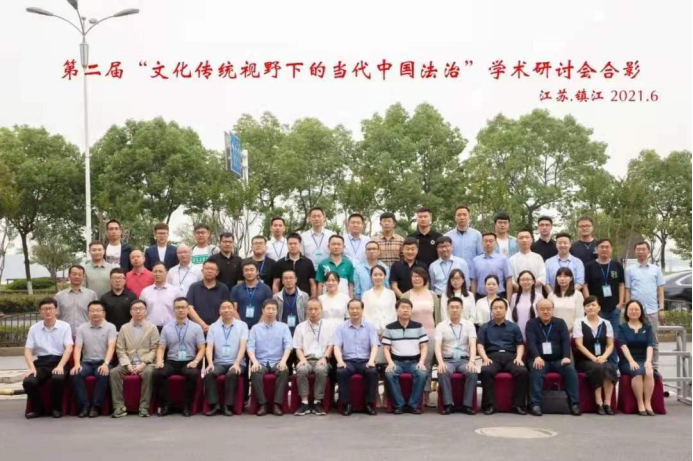On June 19, the second academic seminar titled “the Rule of Law in Contemporary China from the Perspective of Cultural Tradition” was held in Zhenjiang. The conference was jointly organized by Jilin University School of Law, Jiangsu University School of Law, Jilin Law Society Legal Culture Construction Research Institute, Jilin University School of Law Family Judicial Research Center, and Jiangsu University Integrity and Rule of Law Institute. Experts, scholars and practitioners from Peking University, Tsinghua University, Jilin University, Nankai University, Hunan University, Tongji University and other more than 40 well-known universities and scientific research institutions across the country gathered to discuss the topic of cultural tradition and the modern rule of law, to express their own opinions and promote the construction of the subjectivity of Chinese rule of law.
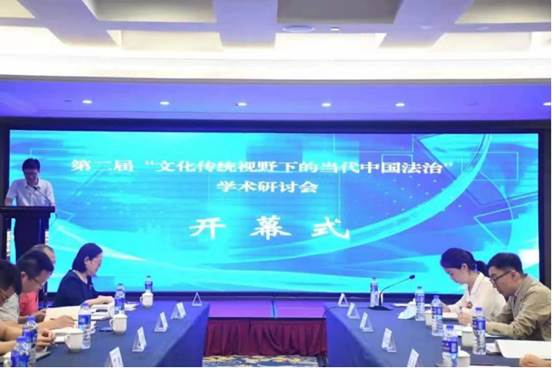
(Li Bingshuo Dean, Jiangsu University School of Law)
The opening ceremony of the conference was presided over by Professor Li Bingshuo, Dean, Jiangsu University School of Law. Professor Li Bingshuo first introduced the background and significance of the conference and extended a warm welcome to all the leaders, guests and representatives attending the seminar.
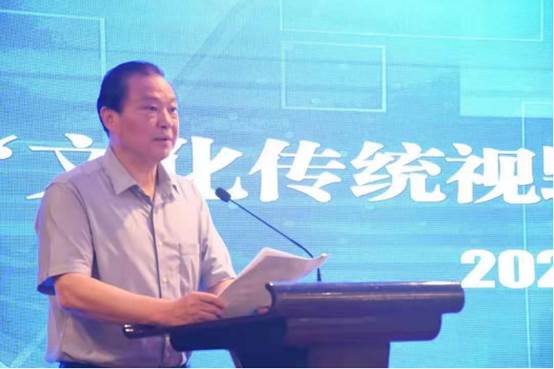
(Gao Qingguo, Member of the Standing Committee of Jiangsu University Party Committee and Secretary of Discipline Inspection Commission)
Gao Qingguo, Member of the Standing Committee of Jiangsu University Party Committee and Secretary of Discipline Inspection Commission, addressed the opening ceremony of the meeting. On behalf of Jiangsu University, he extended a warm welcome to all the leaders and experts who attended the conference, and expressed his heartfelt thanks to the academic colleagues for their long-term care and strong support for the development of Jiangsu University. He pointed out that to discuss the legal issues in contemporary China from the perspective of cultural tradition can not only give new vitality to the traditional culture, but also draw nutrition from it. He believed that the conference would further promote the academic development and achieve a complete success.
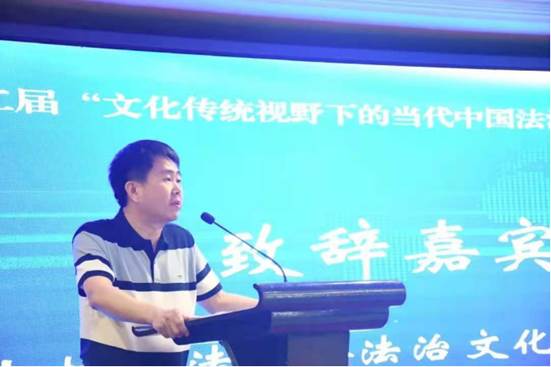
(Professor Li Yongjun, Jilin University School of Law)
Professor Li Yongjun, Jilin University School of Law, Standing Associate President of Jilin Law Society Legal Culture Construction Research Institute, delivered a speech, he said that the meeting, held in Zhenjiang, has reached a new level in both scale and level and is of great significance. He emphasized that tradition is a kind of "living past" and a vertical transmission, and the rule of law in any country can never leave its traditional culture. Finally, he wished that this conference could carry out in-depth discussions and truly strengthen academic efforts and exchange feelings.
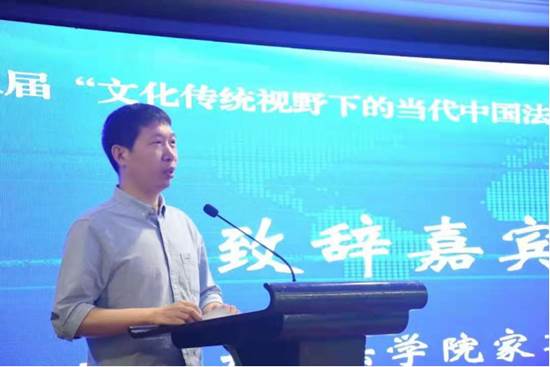
(Professor Hou Xuebin, Jilin University School of Law)
Professor Hou Xuebin, Jilin University School of Law, Director of the Jilin University School of Law Family Justice Research Center, delivered a speech, he pointed out that the rule of law is not just a vocabulary, but a concept with profound cultural nature. The content of the rule of law contains the experience from history and the spirit of cultural tradition. He hoped that the participating guests could have a profound collision of thinking on the cultural tradition and the research topics in the field of the rule of law in contemporary China, and fully exchange academic views.
The conference will last for one day, divided into two parts: keynote speech and symposium.
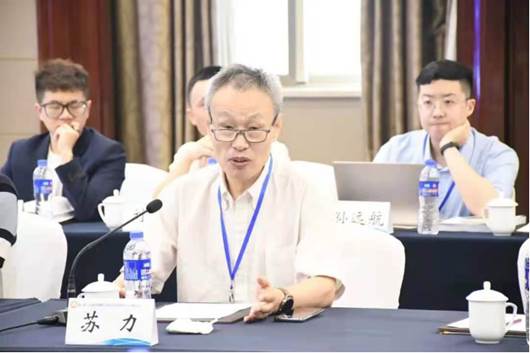
(Professor Zhu Suli, Peking University School of Law)
The conference officially began. First of all, Professor Zhu Suli, Peking University Law School, delivered a keynote speech. Professor Zhu Suli pointed out that due to the long history of China, the cultural tradition is almost more understood as the China of history, the China of Jing, Shi, Zi and Ji, and the China of farming. But judging from China's recent and modern history, the CPC's tradition of leading China's revolution and development over the past 100 years has also been part of our cultural tradition. This period of history is connected with ancient China in the past and modern China in the present. It has stipulated the problems of the rule of law in China from all aspects and shaped the response of the rule of law in China. Therefore, cultural traditions are not only shaped by historical China, but also created today.
Professor Zhu Suli then proceeded from the cultural tradition of historical China and the practical need of governance in a large agricultural country, and analyzed the historical connection and development innovation between the political and legal tradition of "being officials in other places" in history and the system of "the party supervise cadres" under modern social conditions. He pointed out that we should study the rule of law in China in the living cultural tradition, form China's position and Chinese discourse, and build up academic confidence. Professor Zhu Suli's profound and transparent speech established the theme and core spirit of the conference, and laid the keynote of academic discussion.
Next, the conference moved into the symposium, which was divided into five units.
The first unit, with the theme of "the Recovery and Contemporary Interpretation of Traditional Legal Culture", was presided over by the lecturer Lin Leming, Dalian Maritime University School of Law, and a total of five scholars made speeches. Associate professor Tu Kai, Tsinghua University School of Law, pointed out that the theory of local autonomy in ancient China under the framework of feudalism and prefectures and counties still influences contemporary social sciences including law.Professor Xie Hongxing, Jiangxi University of Finance and Economics School of Law, believes that the "codification" of ancient China carries the ideal of the Chinese nation's ancestors to inherit the rule of Kings, contains the Chinese wisdom of pursuing "good governance", and constitutes the historical origin and local resources of the contemporary "governance of China".Associate professor Feng Xuewei, Nankai University School of Law, said that only by studying the development of identity and contract in traditional Chinese society can we fully mobilize the practical rationality of the society to carry out more effective system design. Qu Zhenglong, associate professor of Soochow University Kenneth Wang School of Law, reinterpreted the jurisprudence connotation of "Zhong Dao" by referring to China's cultural tradition, and proposed the view of constructing a legal system under the integration of "Zhong Dao". Lecturer Yi Tao, Shandong Normal University School of Law, proposed the concept of "Confucianism of Rights" and advocated writing a Chinese version of the philosophy of law of rights and law of historical based on the cultural tradition.Professor Hou Xuebin, Jilin University School of Law, and Associate professor Wang Linghao, Zhejiang University Guanghua Law School, commented on the speeches of the five scholars.
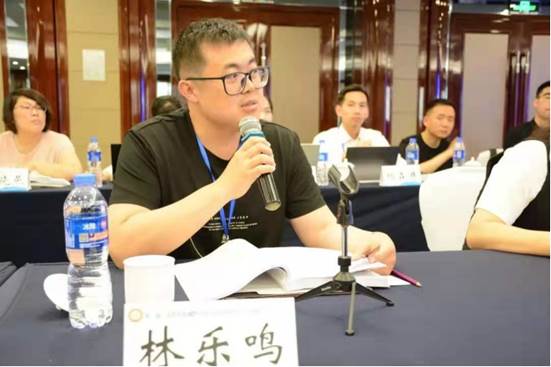
(Lecturer Lin Leming, Dalian Maritime University School of Law)
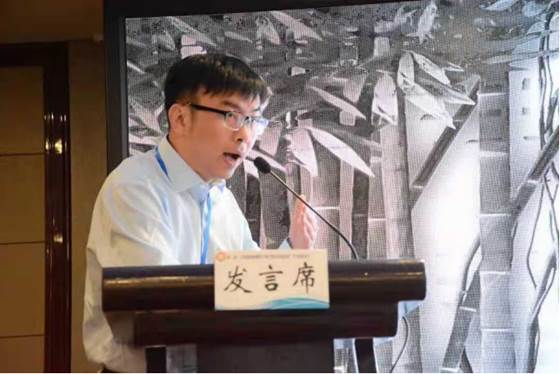
(Associate professor Tu Kai, Tsinghua University School of Law)
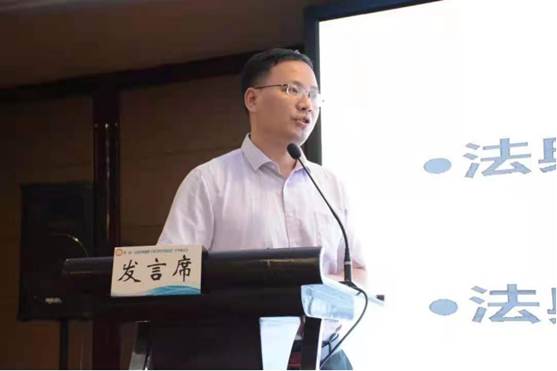
(Professor Xie Hongxing, Jiangxi University of Finance and Economics School of Law)
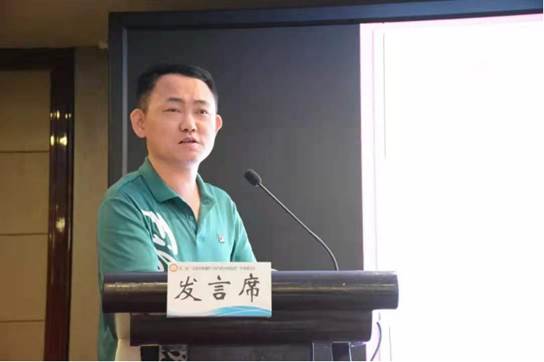
(Associate professor Feng Xuewei, Nankai University School of Law)
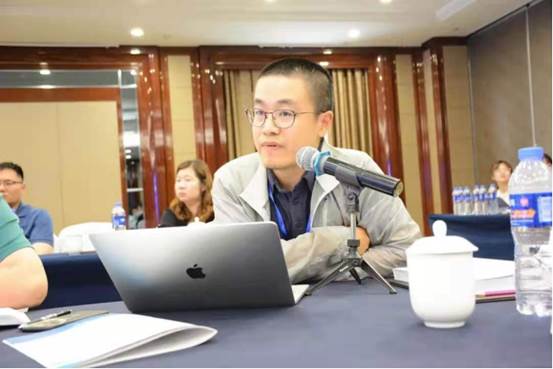
(Associate professor Qu Zhenglong, Soochow University Kenneth Wang School of Law)
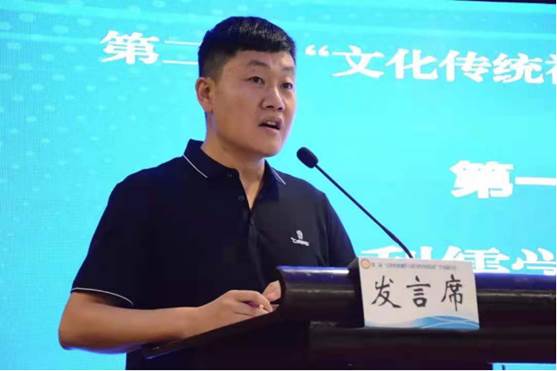
(Lecturer Yi Tao, Shandong Normal University School of Law)
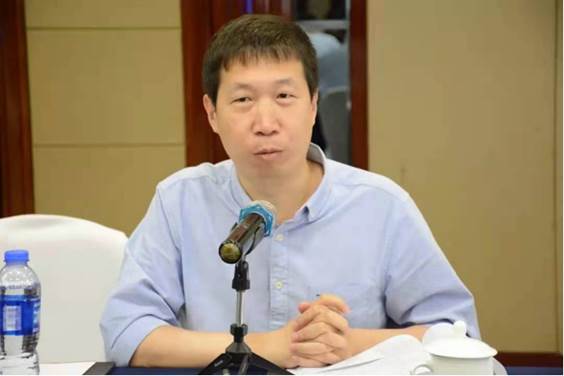
(Professor Hou Xuebin, Jilin University School of Law)
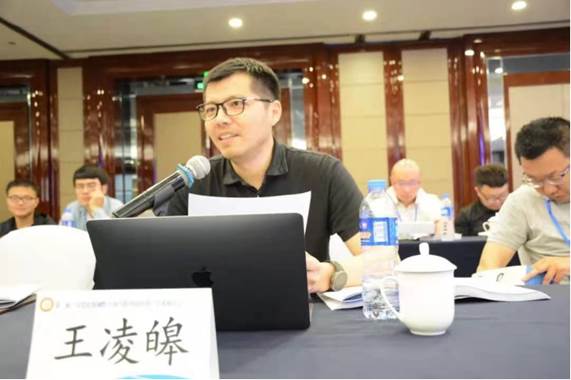
(Associate professor Wang Linghao, Zhejiang University Guanghua Law School)
The second unit is themed "the Application of Cultural Tradition in Modern Justice". The unit is presided over by associate professor Li Wei, Shandong University of Science and Technology College of Humanity and Law, and a total of five scholars made speeches.Associate professor Liu Shunfeng, Hunan Normal University School of Law, made an empirical analysis on the judicial citing of law proverbs and proposed that the system construction should be carried out from the aspects of enhancing the awareness of citing of law proverbs and regulating the written expression of law proverbs, based on the inherent judicial concept and experience of China.Wang Xiongtao, associate professor of Tongji University Law School, pointed out that the litigation adjudication of counties and states in the Qing Dynasty belonged to the traditional judicial system in nature, which was not the "rule of law" based on law, but the "governance justice" with the purpose of governance.Chen Yueou, a doctoral candidate from Jilin University School of Law, made an investigation on the copyright disputes of red classic works and proposed that the judicial evolution of legal tradition would form a nonlinear legal development view which was different from the linear legal traditional development view dominated by "modern paradigm". Yang Senjing, a doctoral candidate from Jilin University School of Law, focused on the "Dang River" in Qingshui in the Qing Dynasty, studied the judicial, political and Miao Territory order, and analyzed the development from the "Dang River" customs to the "Dang River" regulations and then to the "Dang River" system. Sun Yuanhang, a doctoral candidate from Jilin University School of Law, compared and analyzed the standard basis of the age system of juvenile criminal responsibility in traditional and modern China by comparing the Great Qing Code and Criminal Law.Professor Liu Xiaoping, Jilin University School of Law, and assistant researcher Wang Jing, East China University of Political Science and Law reviewed the papers in this unit.
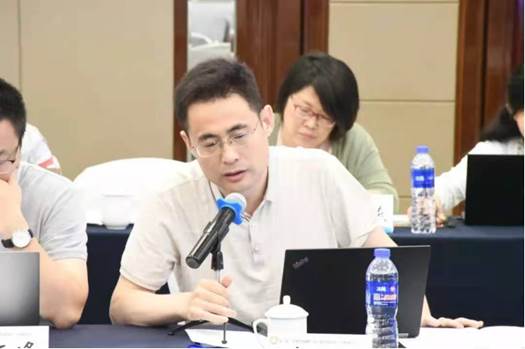
(Associate Professor Li Wei, Shandong University of Science and Technology College of Humanity and Law)
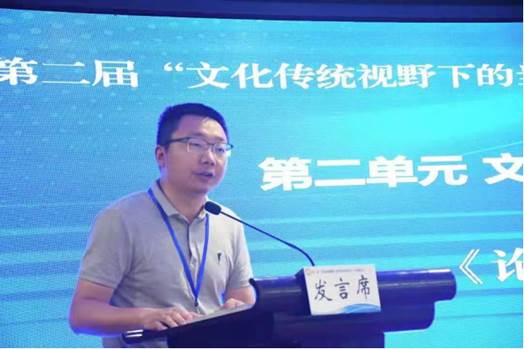
(Associate Professor Liu Shunfeng, Hunan Normal University School of Law)
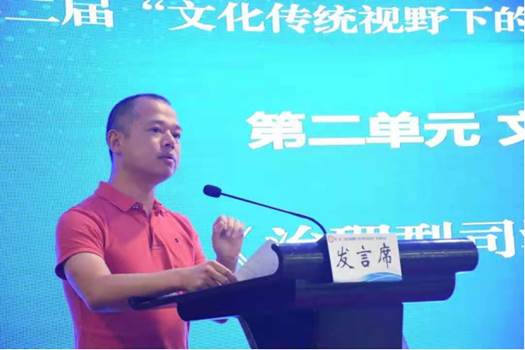
(Associate Professor Wang Xiongtao, Tongji University Law School)

(Doctoral Candidate Chen Yueou, Jilin University School of Law)
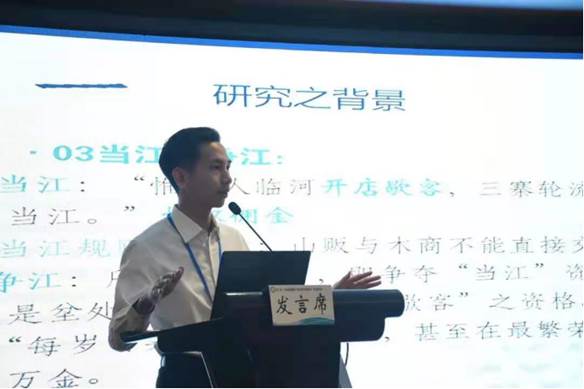
(Doctoral Candidate Yang Senjing, Jilin University School of Law)
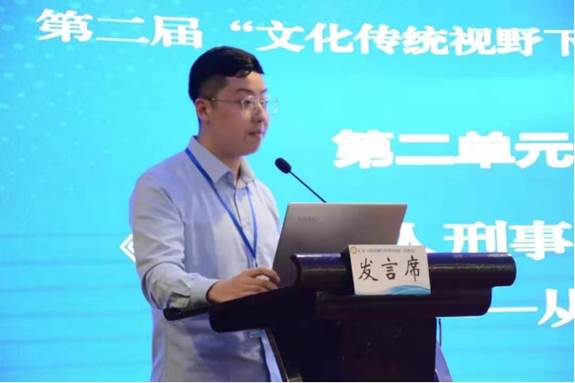
(Doctoral Candidate Sun Yuanhang, Jilin University School of Law)
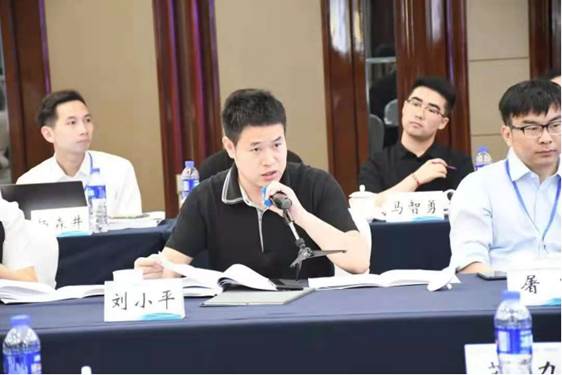
(Professor Liu Xiaoping, Jilin University School of Law)
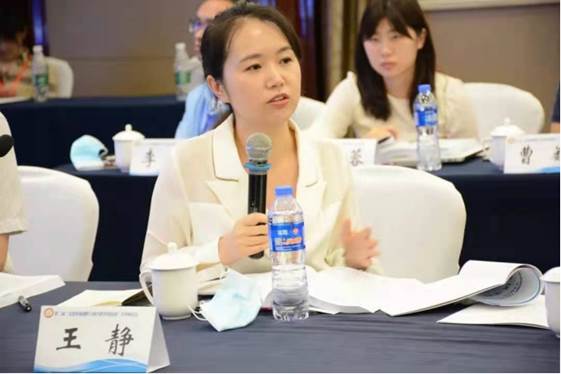
(Assistant Researcher Wang Jing, East China University of Political Science and Law)
The third unit, with the theme of "Innovative Development of Traditional Social Governance Experience", was presided over by associate professor Cui Li, Shenyang Normal University School of Law, and a total of five scholars delivered speeches. Professor Ning Libiao, Guizhou University School of Law, pointed out that in order to improve the practical effect of legal norms in the knowledge scenario and action strategy of rural social mediation, we must adhere to the application of mandatory legal norms and reinforce the application of custom and reason with modern legal standards. Taking COVID-19 prevention and control as an example, associate professor Ding Yi, Ocean University of China School of Law, studied social exclusion and its response to challenges from the perspective of legal sociology. Professor Wang Fangyu, Huaqiao University Law School, emphasized that modern "filial piety" is bi-directional, and it is necessary to integrate and popularize traditional filial piety with modern discourse of rights.Zhang Jian, associate professor of Jiangsu University Schoolof Law, took Longquan, Zhejiang Province as an example to study the historical scene and jurisprudence of the governance of social crimes at the grassroots level since the founding of the People's Republic of China. Liu E, a lecturer from the School of Laws and Public Administration, Hunan University of Science and Technology, examined the education of grass-roots police in the late Qing Dynasty with a diploma from Wuhan Police Coach Institute. Professor Wang Yong, Dalian Maritime University Law School, andassociate professor Miao Yan, Jilin University School of Law, reviewed the above research results.
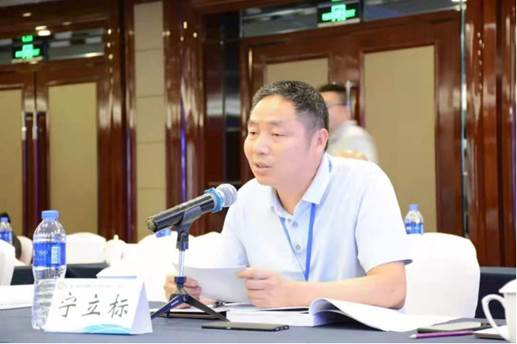
(Professor Ning Libiao, Guizhou University School of Law)
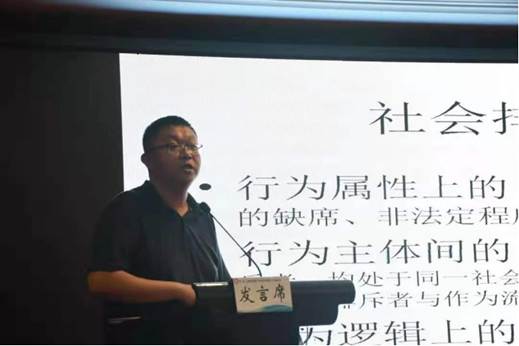
(Associate Professor Ding Yi, Ocean University of China School of Law)
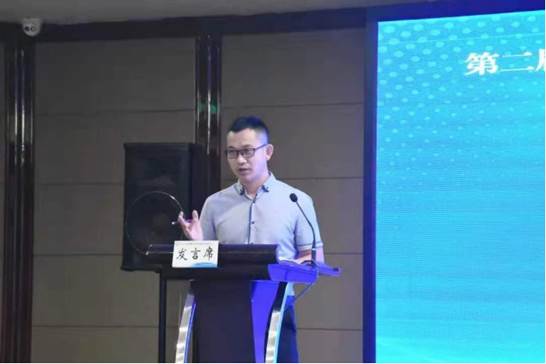
(Professor Wang Fangyu, Huaqiao University Law School)
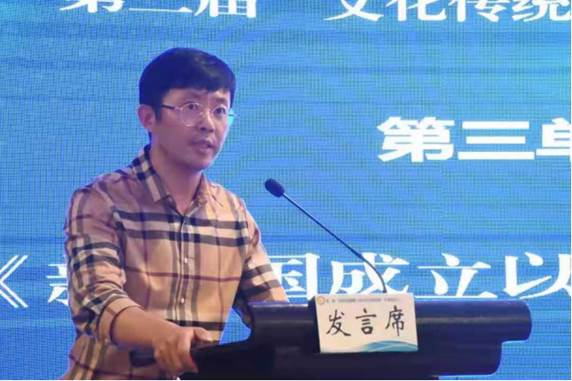
(Associate Professor Zhang Jian, Jiangsu University School of Law)
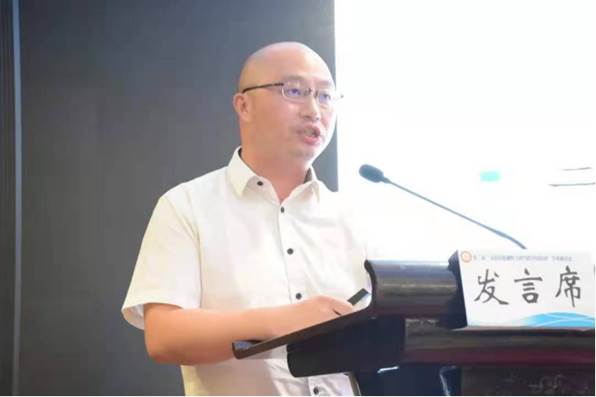
(Lecturer Liu E, the School of Laws and Public Administration, Hunan University of Science and Technology)
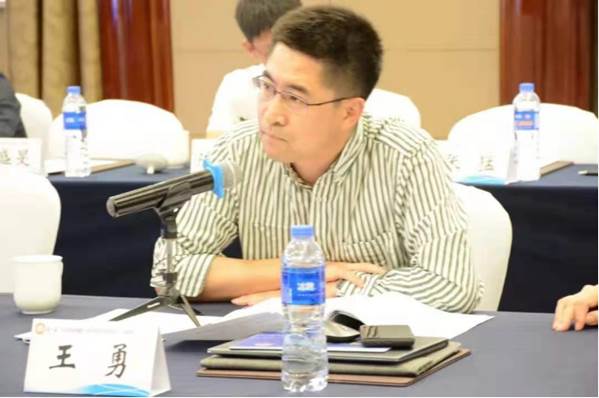
(Professor Wang Yong, Dalian Maritime University Law School)
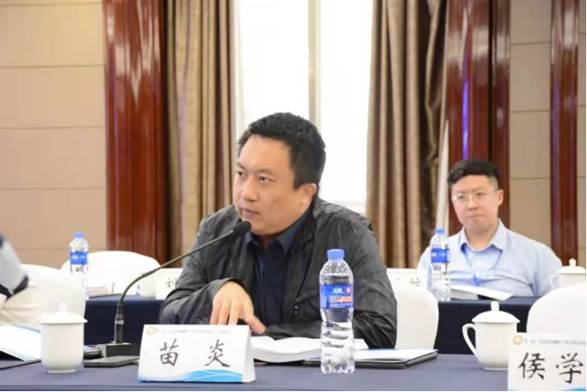
(Associate Professor Miao Yan, Jilin University School of Law)
The fourth unit is themed "the Creative Transformation of Traditional Family Law". The unit is presided over by the lecturer Wen Yu from Lanzhou University Law School, and a total of five scholars delivered speeches. Associate professor Qian Jilei, Qilu University of Technology School of Law, pointed out that it is necessary to sort out and reflect on the current attention, discussion and interpretation of the tradition of "family" in the law circle, and make a rational interpretation of "family" in Chinese society in the current world structure. Associate professor Li Jingrong, Hunan University School of Law, studied the family order and its transformation under the Qin and Han criminal laws. Daqing City, Ranghulu District People's Court marriage and family court chief LiBiao said, from the historical perspective of "family" to see the direction of resolving family contradictions, looking for the direction and way of resolving family contradictions in the new era. Ma Zhiyong, a doctoral candidate from Jilin University School of Law, pointed out that the cooling-off period of divorce in China is an adjustment to the value of "registered divorce" under the domination of "practical morality". Zhang Wanli, a doctoral candidate from Tsinghua University School of Law, believes that by comparing the ChengFu rules with the advocating clauses in the Marriage and Family Part of the Civil Code, it can be found that the view of marital responsibility in ShiHun Li can provide explanatory resources for contemporary family jurisprudence. Professor Chen Cuiyu, Southwest University of Political Science and Law School of Law, andassociate professor Yang Fan, Jilin University School of Law, reviewed the papers of this unit.
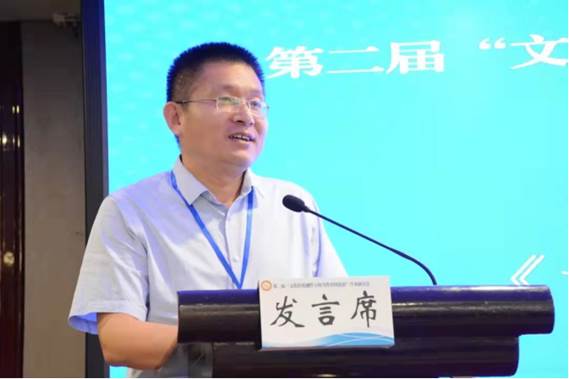
(Associate Professor Qian Jilei, Qilu University of Technology School of Law)
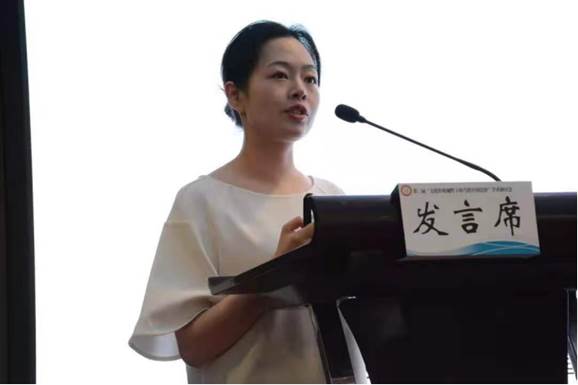
(Associate Professor Li Jingrong, Hunan University School of Law)

(Daqing City, Ranghulu District People's Court marriage and family court chief LiBiao)
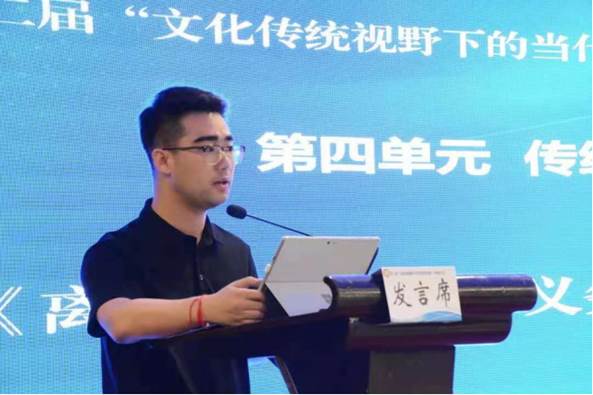
(Doctoral Candidate Ma Zhiyong, Jilin University School of Law)
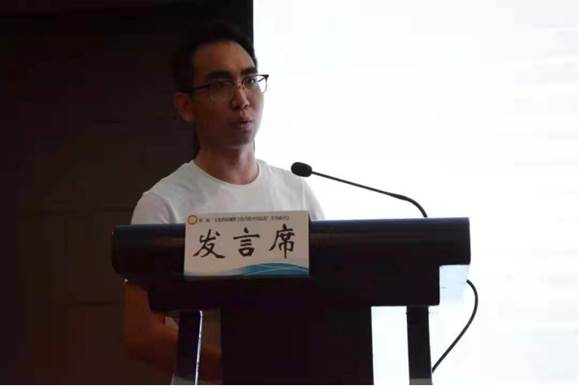
(Doctoral Candidate Zhang Wanli, Tsinghua University School of Law)
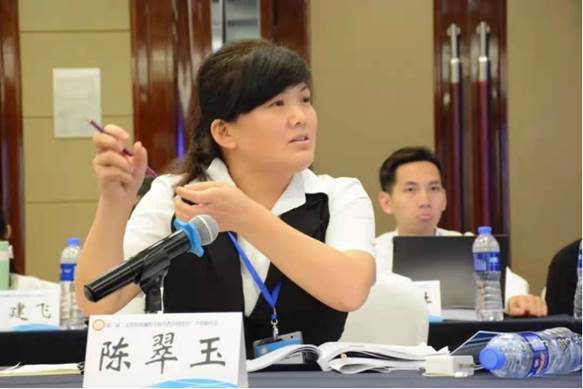
(Professor Chen Cuiyu, Southwest University of Political Science and Law School of Law)
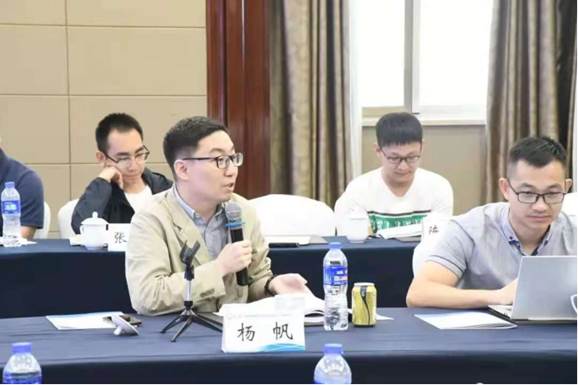
(Associate Professor Yang Fan, Jilin University School of Law)
The last unit, themed "Legal Tradition in the Modernization of National Governance", was hosted by Jiang Ye, lecturer from Hebei Normal University School of Law, Politics and Public Administration. Five scholars made speeches.Professor Wang Zheng, Jinan Academy of Social Sciences and Shandong University of Political Science and Lawdiscussed the function of modern village rules and conventions in current rural governance from the perspective of folk law theory. Gao Yifei, lecturer of Zhejiang Gongshang University School of Law, summarized the cultural characteristics and rules of information disclosure in China through cultural analysis of government information disclosure. Lecturer Cao Wei, Hainan University School of Marxism, discussed the necessity and feasibility of studying the legal culture and social governance in Hainan during the construction of Hainan Free Trade Port in the future. Cao Shengmin, lecturer of School of Marxism, Ocean University of China, made a comparative interpretation of Confucianism and communitarianism based on the theory of "On Liberty". Li Shulei, a doctoral candidate majoring in jurisprudence of Jilin University School of Law, studied the changes of modern Confucianism and legal concepts from the perspective of the changes of the translated words of Natural Law. Xiao Jianfei, professor of Jiangsu University School of Law, and Liu Zhenyu, associate professor of Shanghai Normal University School of Philosophy, Law and Politics, commented on the above remarks.
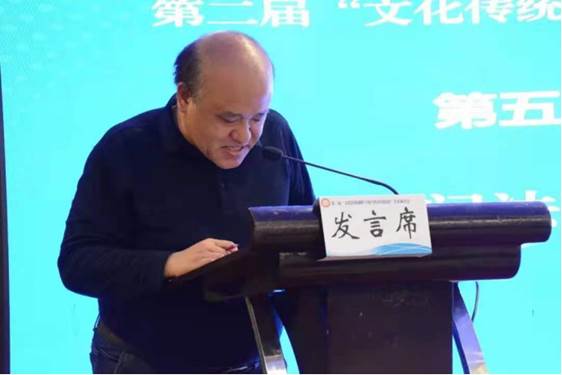
(Professor Wang Zheng, Jinan Academy of Social Sciences and Shandong University of Political Science and Law)
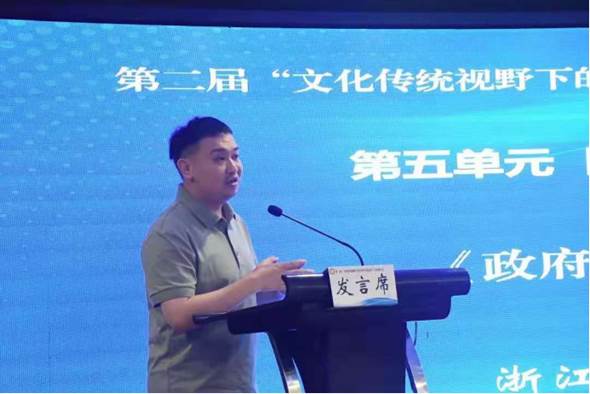
(Lecturer Gao Yifei, Zhejiang Gongshang University School of Law)
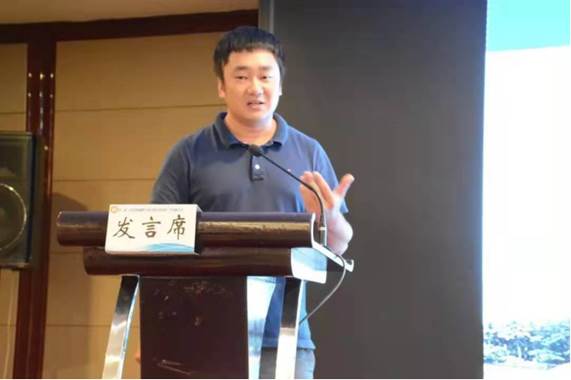
(Lecturer Cao Wei, Hainan University School of Marxism)
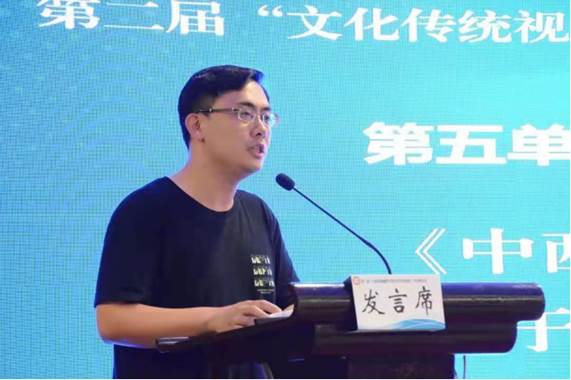
(Lecturer Cao Shengmin, Ocean University of China School of Marxism)
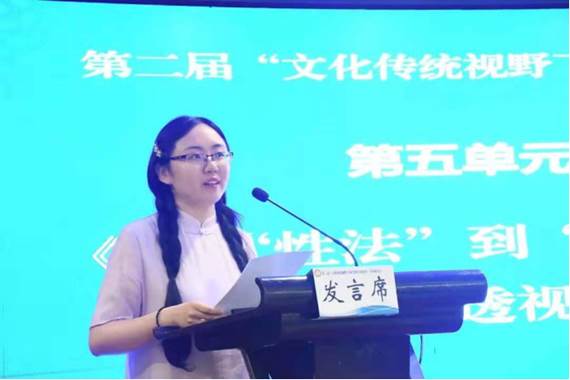
(Doctoral Candidate Li Shulei, majoring in jurisprudence of Jilin University School of Law)
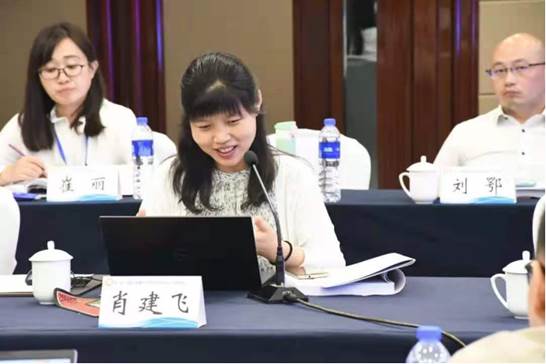
(Professor Xiao Jianfei, Jiangsu University School of Law)
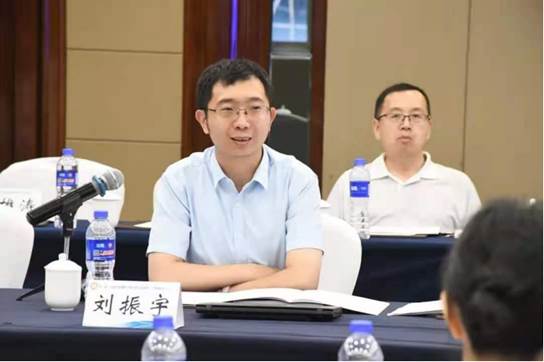
(Associate Professor Liu Zhenyu, Shanghai Normal University School of Philosophy, Law and Politics)
In the free discussion of the above topics, scholars from Tsinghua University, Nankai University, Zhejiang University and other universities delivered speeches respectively, and conducted in-depth and detailed discussions on the research topics of each unit. The innovative views and research perspectives were further burst out and expanded in the multi-angle exchanges.
At the end of the conference, professor Wang Yong, Dalian Maritime University School of Law, and professor Li Yongjun, Jilin University School of Law, summarized the academic seminar. The closing ceremony of the conference was presided over by professor Li Bingshuo, Jiangsu University School of Law.
At this point, the second academic seminar titled “the Rule of Law in Contemporary China from the Perspective of Cultural Tradition” came to a successful conclusion. The conference discussed many theoretical and practical issues in the development of modern rule of law from the perspective of traditional culture. The insights of all the participants not only enriched the academic achievements in this field, but also further contributed to the construction of the rule of law in contemporary China.
